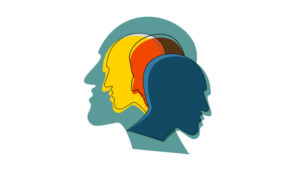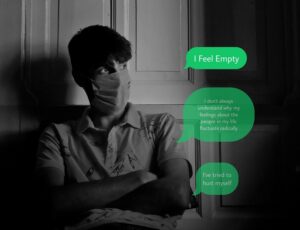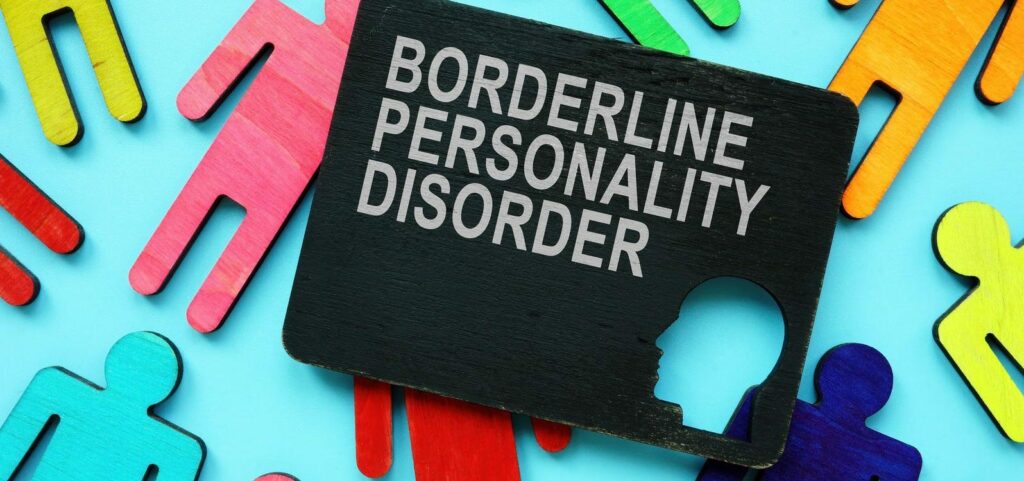Borderline Personality Disorder is a mental illness that causes people to have unstable emotions and relationships. It can be difficult to diagnose because the symptoms are similar to other mental illnesses, such as bipolar disorder and depression.
Contents
- 1 What Is Borderline Personality Disorder?
- 2 Symptoms of Borderline Personality Disorder
- 3 Types Of Borderline Personality Disorder
- 4 Causes Of BPD
- 5 How Does Borderline Personality Disorder Affect You?
- 6 Tips To Cope With Borderline Personality Disorder
- 7 Diagnosis of Borderline Personality Disorder
- 8 Treatment Of Borderline Personality Disorder
- 9 Self-Help Strategies For Borderline Personality Disorder
- 10 Other related Conditions With BPD
- 11 Conclusion
- 12 A Word From Therapy Mantra
What Is Borderline Personality Disorder?

Borderline Personality Disorder is a mental disorder that causes people to have unstable moods, relationships, and behavior. People with this Disorder also switch rapidly between loving and hating someone. They may also have problems with identity, impulsiveness, and self-harm.
People with Borderline Personality Disorder often experience intense mood swings, feelings of emptiness, and problems with impulse control. In this blog post, we will discuss what BPD is, the symptoms of BPD, the types, the causes of it, and the treatment for BPD.
Symptoms of Borderline Personality Disorder
The symptoms can vary from person to person, but some of the most common symptoms include-

- Mood swings
- Problems with impulse control
- Feelings of emptiness
- Intense relationships
- Chronic feelings of emptiness
- Self-harm
- Risky behavior
- Unstable moods
- Rapid changes in feelings toward others
- Problems with identity
- Impulsiveness
- Self-harm behaviors, such as cutting or burning themselves
- Feelings of emptiness and boredom: You may feel like you’re stuck in a black hole with no way out
- Inability to regulate emotions: This means that your emotions can change rapidly and without warning
- Extreme mood swings: These can go from feeling really good one minute to feeling really bad the next minute
- Difficulty maintaining relationships: People with BPD often have trouble trusting others and forming close relationships
- Unstable sense of self: Your sense of who you are may change quite frequently
- Self-harm behaviors: This includes things like cutting or overdosing on drugs or alcohol
Types Of Borderline Personality Disorder
 There are four main types of Borderline Personality Disorder-
There are four main types of Borderline Personality Disorder-
- Dependent: People with this type of BPD need others to take care of them and may feel helpless without someone else’s support.
- Avoidant: People with avoidant BPD tend to be very shy and insecure, and often have a fear of being rejected by others.
- Obsessive-compulsive: People with obsessive-compulsive BPD are perfectionists who can be very demanding and controlling.
- Borderline: The most common type of BPD, people with borderline personality disorder have unstable moods, relationships, and self-identities.
There are four other types of Borderline Personality Disorder: emotional instability type, impulsive type, paranoid type, and borderline narcissistic
Emotional Instability Type
The emotional instability type is the most common type of BPD. People with this type also have a hard time regulating their emotions and can quickly switch from being happy to being sad or angry.
Impulsive Type
People with the impulsive type of Borderline Personality Disorder often act on impulse without thinking about the consequences. They may take risks, such as gambling or having unsafe sex, that they later regret.
Paranoid Type
The paranoid type of Borderline Personality Disorder is characterized by distrust and paranoia. People in this group often believe that others are out to get them and may be convinced that their partners are cheating on them or that people are talking about them behind their backs.
Borderline Narcissistic Type
The borderline narcissistic type is characterized by a need for attention and admiration. People in this group often have an inflated sense of self-worth and may be very sensitive to criticism.
Causes Of BPD

The cause of Borderline Personality Disorder is not fully understood, but it is thought to be caused by a combination of genetics and environment. Risk factors for developing BPD include-
- Having a family history of BPD: If you have a parent or sibling with BPD, your risk of developing the disorder is increased
- Experiencing childhood abuse or neglect: This can increase your risk of developing BPD
- Having mental health problems such as depression, anxiety, eating disorders, and self-harm behaviors: People who experience these conditions are more likely to develop BPD
- Using drugs or alcohol: Substance abuse can be a contributory factor in the development of BPD.
- Experiencing childhood abuse or neglect: This can increase your risk of developing BPD.
- Having mental health problems such as depression, anxiety, eating disorders, and self-harm behaviors: People who experience these conditions are more likely to develop BPD.
- Using drugs or alcohol: Substance abuse can be a contributory factor in the development of BPD.
- Living in an unstable home environment: If you move around a lot or your family is chaotic, this can increase your risk of developing BPD.
How Does Borderline Personality Disorder Affect You?

Borderline Personality Disorder can affect every part of your life, including your relationships, job, and health. It can also lead to problems such as drug or alcohol addiction.
Effects On Relationship
People with Borderline Personality Disorder often have intense and unstable relationships. They may fall in love quickly, but they can also quickly become angry or resentful toward their partners. They may also have a hard time trusting people and can be very jealous.
Effects On Job
BPD can also affect your job performance. That is because people with the disorder may have trouble focusing on tasks, making decisions, or staying organized. They may also impulsively quit jobs or get fired for behavioral problems.
Effects On Health
People with this Disorder are at risk for many health problems, including heart disease, diabetes, and obesity. They are also more likely to attempt suicide than those without the disorder.
People with borderline personality disorder are at risk for suicide. They are more than five times as likely to die by suicide than people without the disorder.
Tips To Cope With Borderline Personality Disorder

If you have Borderline Personality Disorder, there are some things you can do to help manage your symptoms. Here are a few tips-
- Talk to your doctor or therapist: This is the best way to get support and treatment for BPD
- Join a support group: Meeting with other people who have BPD can be helpful because you can share strategies for coping and learn from each other
- Keep a journal: Writing down your thoughts and feelings can help you understand them better and may also reduce stress
- Practice mindfulness meditation: Mindfulness meditation involves focusing on your breath and body sensations without judgment. This can help you stay in the present moment and reduce stress
- Avoid drugs and alcohol: Substance abuse can make BPD symptoms worse, so it’s important to avoid them
- Take care of yourself: Make sure you get enough sleep, exercise regularly, and eat a healthy diet. This can help improve your mood and overall well-being.
- Take help from family members: Family members can provide emotional and practical support to people with a borderline personality disorder.
If you have any questions or concerns, talk to your doctor or therapist. They can help you get the support you need.
Diagnosis of Borderline Personality Disorder
If you think you may have a borderline personality disorder, then you must see a mental health professional. As the diagnosis of BPD is based on your symptoms and how they affect your life. Therefore, BPD can be difficult to diagnose because the symptoms can vary from person to person. Some people with this disorder may only experience a few of the symptoms listed above, while others may experience many of them. If you think you may have it, see a mental health professional. A diagnosis of this personality disorder is based on your symptoms and how they affect your life.
Treatment Of Borderline Personality Disorder

There is no one-size-fits-all treatment for borderline personality disorder, but many people find that therapy and medication help.
Therapy: Therapy is a key part of treatment for this disorder. Because it can help you understand your thoughts and emotions and learn how to manage them better.
CBT
The most common type of therapy used to treat this personality disorder is cognitive-behavioral therapy (CBT). CBT helps you learn how to recognize and change unhealthy thoughts and behaviors.
DBT
Dialectical behavior therapy (DBT) is another type of therapy that can be helpful for people with this disorder. DBT helps you learn how to manage your emotions and tolerate distress.
Other Therapy for BPD
Other types of therapy that may be helpful for people with such personality disorder include family therapy, group therapy, and expressive therapies such as art or music therapy.
Family Therapy
Family therapy can help you and your family understand Borderline Personality Disorder and how it affects your lives. This therapy can also help you learn better ways to support each other.
Group Therapy
Group therapy can be helpful for people with a borderline personality disorder because it allows them to share their experiences with others who are going through the same thing. This therapy can also provide support and practical advice.
Medication
Some people with borderline personality disorder find that medication helps control their symptoms. medications that may be prescribed include antidepressants, antipsychotics, and mood stabilizers.
Antidepressants
Antidepressants are often prescribed to treat depressive symptoms in people with a borderline personality disorder.
Antipsychotics
Antipsychotic medications may be prescribed to help control symptoms such as hallucinations, delusions, and paranoia.
Mood Stabilizers
Mood stabilizers are often prescribed to people with borderline personality disorder who have problems with mood swings or episodes of intense anger.
Inpatient Treatment
Inpatient treatment offers intensive therapy and support in a hospital or residential setting. And in some cases, people with a borderline personality disorder may need inpatient treatment.
Outpatient Treatment
Outpatient treatment is less intensive than inpatient treatment and can be done on a part-time or full-time basis. Because this type of treatment usually includes individual therapy, group therapy, and medication management.
Self-Help Strategies For Borderline Personality Disorder

There are also many self-help strategies that can be helpful for people with this disorder. Some self-help strategies include:
- Learning about this disorder and how to manage your symptoms
- Practicing stress-relieving techniques such as yoga or meditation
- Building a support system of family and friends
- Avoiding alcohol and drugs
- Journaling to express your thoughts and feelings
- Participating in activities that you enjoy
There is no one-size-fits-all treatment for borderline personality disorder, but many people find that therapy and medication help. So if you think you may have BPD, see a mental health professional today.
A borderline personality disorder is often accompanied by other mental health conditions, such as:
- Depression
- Anxiety disorders
- Eating disorders
- Substance abuse problems
People with a BPD may also be at risk for self-harm and suicide. Therefore it is important to get help if you are experiencing any suicidal thoughts or behaviors.
Conclusion
To conclude, Borderline Personality Disorder is a serious mental illness that can cause a lot of pain and chaos in your life. So if you think you may have BPD, it is important to get help. There is no one-size-fits-all treatment for BPD, but many people find that therapy and medication help. So there is always hope for healing!
A Word From Therapy Mantra
Your mental health — Your psychological, emotional, and social well-being — has an impact on every aspect of your life. Positive mental health essentially allows you to effectively deal with life’s everyday challenges.
At TherapyMantra, we have a team of therapists who provide affordable online therapy to assist you with issues such as depression, anxiety, stress, workplace Issues, addiction, relationship, OCD, LGBTQ, and PTSD. You can book a free therapy or download our free Android or iOS app.


